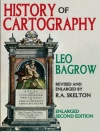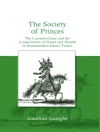This book is a study of five remarkable sixteenth-century women. Part of the select group of Tudor women allowed access to a formal education, the Cooke sisters were also well-connected through their marriages to influential Elizabethan politicians. Drawing particularly on the sisters’ own writings, this book demonstrates that the sisters’ education extended far beyond that normally allowed for sixteenth-century women, challenging the view that women in this period were excluded from using their formal education to practical effect. It reveals that the sisters’ learning provided them with opportunities to communicate effectively their own priorities through their translations, verse and letters. By reconstructing the sisters’ networks, it demonstrates how they worked alongside – and sometimes against – family members over matters of politics and religion, empowered by their exceptional education. Providing new perspectives on these key issues, it will be essential reading for early modern historians and literary scholars.
Tabla de materias
Introduction
1. ‘Nouzeled and trained in the studie of letters’: reading and learning
2. ‘Quod licuit feci’: the power of the word
3. ‘Haud inane est quod dico’: female counsellors
4. ‘Cecil’s wife tells me’: political networks
5. ‘Building up of the bodie of the fellowship of Saincts’: religious networks
6. ‘Of more learning than is necessary for that sex’: responses to learned women
Conclusion
Bibliography
Index
Sobre el autor
Gemma Allen is a Lecturer in Early Modern History at The Open University












